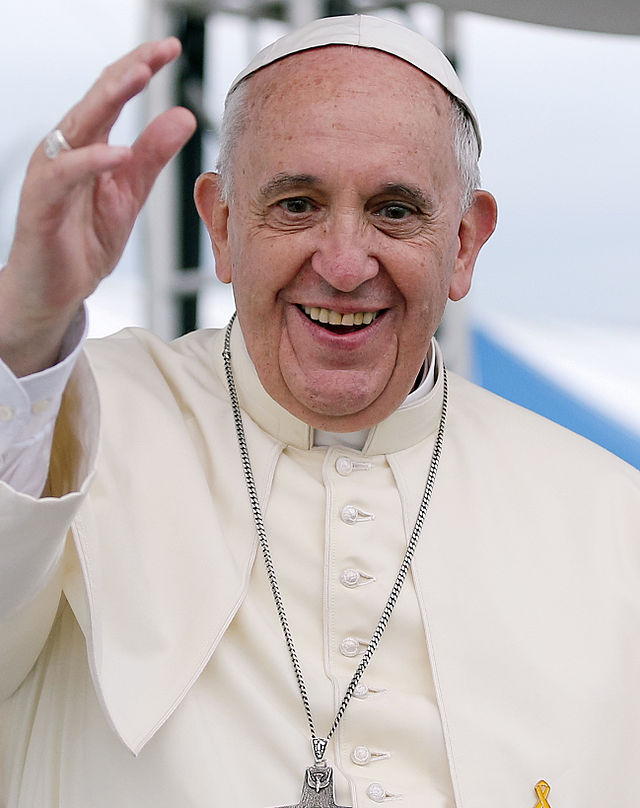Pope Francis’s first couple of years as pontiff have been remarkably successful. His commitment to ending child abuse in the church, his dedication to ‘radical equality‘ between men and women, and his rejection of the overwrought vestments of the papacy have endeared him to Western audiences. In addition, the Pope’s commitment to a peaceful resolution to the Israel-Palestine conflict is certainly admirable.
However, the specific approach to the conflict that Pope Francis has chosen is rather problematic. To briefly summarize the events of the last few weeks, the Vatican — on May 13th — finalized a treaty between itself and the Palestinian Authority, recognizing it as a “Palestinian state.” Shortly afterwards, Pope Francis received PA President Mahmoud Abbas at the Vatican and referred to him as an “angel of peace.”
Firstly, it seems as though Francis has failed to do his research on Abbas. While it is true that Abbas generally opposes violence, he is hardly a hero to be celebrated. Abbas was elected in 2005, and his presidency was set to expire in 2009. Before new elections could be held, however, Abbas extended his term indefinitely. Now, in the tenth year of his four year term, his legitimacy as president is highly questionable. Furthermore, endemic corruption in the Palestinian Authority — while hardly a new phenomenon — has continued to flourish under Abbas’s leadership, enriching a lucky few, including his sons, while only adding to the list of injustices committed against the Palestinian people. Most significantly, the PA under Abbas has dedicated about 3.5% of its budget to providing pensions to the families of suicide attackers, only encouraging similar attacks in the future.
A few caveats. First, Abbas’s failures should not reflect poorly on the Palestinian people. They have not had a chance to vote him out of office. Also, my focus on Abbas here is not meant to shift attention away from the Israeli government’s policies towards the Palestinian people, which many see as problematic because Israel exerts authority over Palestinians living in the West Bank without their consent.
However, when taken together, Francis’s whitewashing of Abbas’s presidency and his recognition of the PA-led State of Palestine make it clear that he is pursuing not just peace, but a very specific version of peace — based on a two state solution negotiated between Israel and the Palestinian Authority.
Were Pope Francis to use his office to amplify Palestinian and Israeli voices that are calling for peace, his actions would be very welcome. However, those voices — as well as the diversity of their desires and demands — are being erased by the advocacy of Pope Francis and other Western leaders for a two state solution based on negotiations between the Israeli government and the Palestinian Authority. For example, Jewish and Palestinian voices that call for a one-state solution are routinely ignored by Western policymakers and media.
It is perfectly legitimate, and even very welcome, for Pope Francis to desire and work towards peace. However, Francis decided to promote one specific political solution to the conflict. In doing so, he has overstepped the boundaries that Western political leaders should maintain when dealing with Southwest Asia and North Africa (a preferable term for the Middle East).
Many such Western leaders have intervened in the SWANA region before, often to the detriment of its indigenous peoples. One of Pope Francis’s predecessors, Pope Urban II, launched the Crusades, killing millions of Jews and Arabs in the same land that Pope Francis is now trying to bring peace to. This tradition was maintained by the British and French colonizers who drew the borders that have created the last hundred years of conflict, and by American presidents who assumed that they knew the region well enough to invade it and reshape it according to their will. While Pope Francis’s actions are obviously not as evil as the aforementioned examples, they emerge from the same hubris that allowed those leaders to assume that they could dictate what would be best for the people of the Middle East.

